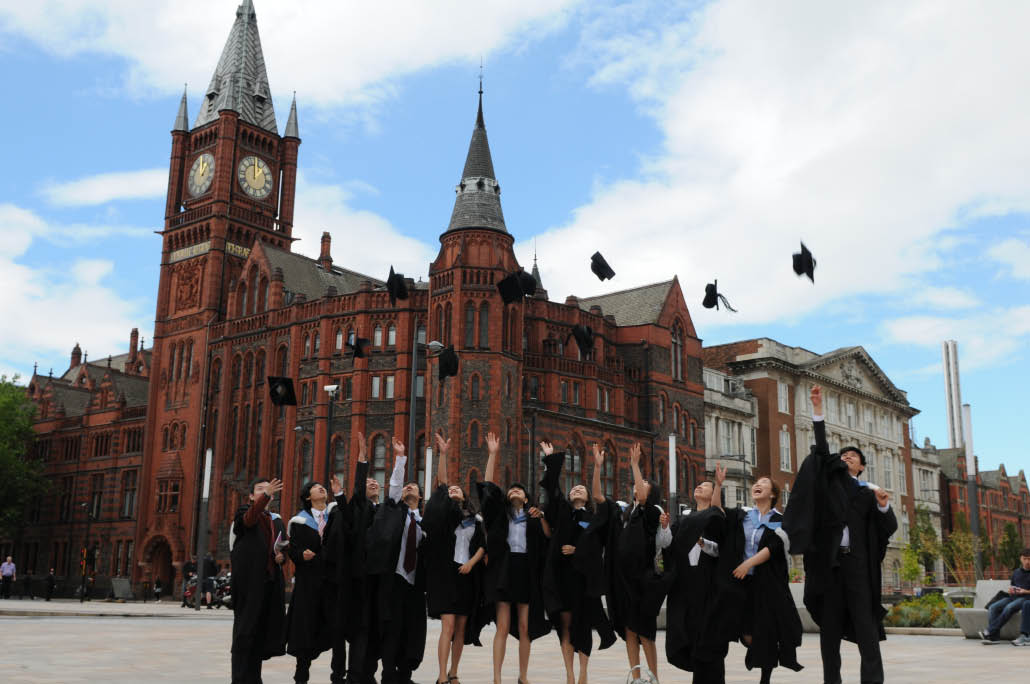| Xi'an Jiaotong-Liverpool University: Exploring a New Education Model
By LING JUNHUI
XI'AN Jiaotong-Liverpool University (XJTLU), established only five years ago in Suzhou, has already gained plaudits for excellent student performance, and it's a fact 90 percent of its graduates head for the world's first-rate universities for postgraduate study. It has topped the list of China's universities in an American math contest for college students for straight three years, and its graduates are praised by world-renowned enterprises like KPMG and the Royal Bank of Scotland. However, strolling along Ren'ai Road of Suzhou Industrial Park, visitors can easily miss this university campus that calls no attention to itself with showy walls and gates. This new type of international university has striking features of a different sort. XJTLU was jointly established by Xi'an Jiaotong University and the University of Liverpool in 2006, as an independent legal entity, and was officially approved by China's Ministry of Education. As China's only university of science and technology based on the China-foreign joint operation model, XJTLU is blazing a new trail for China's higher education reform.
"Given that Western and Eastern approaches to education both have their respective merits and shortcomings, we intend to integrate the excellence of both cultures based on the world's future demand for talent, and explore a unique focus," said Xi Youmin, executive president of the university.
|
 |
| Students conclude their graduation ceremony at the University of Liverpool in the traditional manner. |
Active Learning Approach
In this university, 70 percent of teachers are foreigners who teach only in English. However, the school doesn't organize its students to participate in the CET-4 and CET-6 (English tests for Chinese college students), run by China's education authorities. Zheng Yanfei is a graduate of XJTLU who has been accepted into postgraduate programs at several world-famous universities, including Oxford and Cambridge, and she feels, "My study initiative and ability to solve problems have improved greatly in the last four years through writing lots of English essays and participating in team projects."
In the eyes of students and teachers of XJTLU, the classroom is a place for students to learn, so "learning" on the students' part is more important than "teaching" on the teachers' part. For the same subject, the class hours of XJTLU are usually one-third less than hours used by domestic universities. Teachers here pay more attention to the explanation of knowledge systems and applications; basic concepts and knowledge they require students to learn by themselves in advance. So it is common after each class for the teacher to assign exercises or projects that require students to apply their knowledge to complete the homework, either in teams or individually.
Fang Lei, one of the first batch of XJTLU graduates, continued his postgraduate and doctoral studies, receiving a scholarship of nearly RMB one million. When he first attended the math class in the university, he was totally lost, quite perplexed. But soon he found that his teachers were seemingly good masters of the same kind of essential techniques employed in the Chinese ink and wash painting. For example, the content just needs a brief introduction, redundant explanations were weeded out, and the part demanding special attention gets a detailed, in-depth explanation. (Traditional Chinese ink and wash painting emphasizes different treatments of details for different parts based on their importance). Likewise, homework and essays were closely related to the key contents. Fang Lei said he understood the basic theories and points already, through reference books and materials.
Zhang Dan, a senior student majoring in financial mathematics, had a similar experience. "In XJTLU, whether for basic courses or specialized courses, teachers organize their own teaching materials rather than just following a textbook, and they usually recommend lots of background reading," Zhang said. "For each subject, we need to read a great deal of relevant information, and write various essays in English, which makes us very active learners," she added.
|
